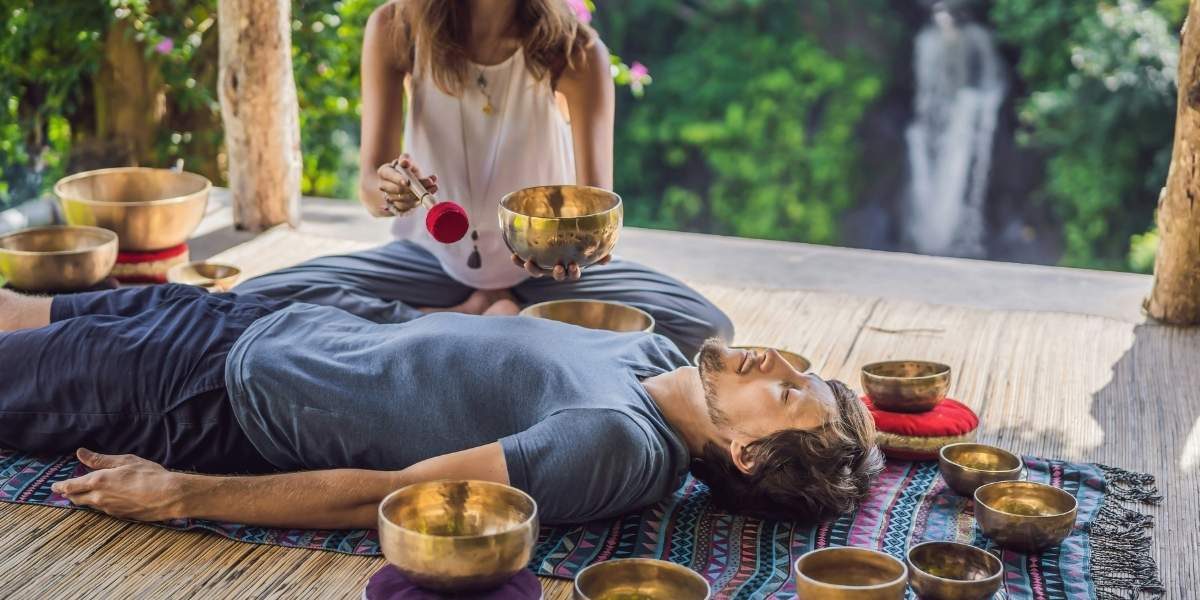Throughout history, ancient civilizations have developed rich traditions of health and wellness that were deeply intertwined with their cultural, spiritual, and philosophical beliefs. These practices were often passed down through generations, grounded in natural remedies, holistic healing, and an understanding of the mind-body connection. As we face the challenges of modern life, there is growing interest in revisiting these ancient health practices to find timeless wisdom and natural approaches to promote well-being.
Read Also: Exploring Ancient Ingenuity: Technological Wonders of the Past
The Wisdom of Traditional Chinese Medicine
One of the most well-known ancient systems of health is Traditional Chinese Medicine (TCM), which dates back over 2,000 years. TCM emphasizes the balance of energy, or “Qi,” within the body, and its flow through pathways known as meridians. The central principle of TCM is that good health arises when there is a harmonious balance between the body, mind, and environment.
Acupuncture, herbal medicine, qigong, and dietary therapy are some of the core practices within TCM. Acupuncture, for example, involves the insertion of thin needles at specific points on the body to stimulate the flow of Qi, alleviate pain, and treat various health conditions. Herbal remedies are often prescribed to restore balance and support the body’s natural healing process.
Modern research indicates that acupuncture and certain herbs used in TCM can be effective for managing chronic pain, reducing inflammation, and even improving emotional well-being. As more people turn to alternative therapies, TCM’s holistic approach continues to gain recognition and has inspired many to incorporate its principles into their own health routines.
Ayurveda: The Ancient Science of Life
Another influential ancient system of health is Ayurveda, the traditional medicine of India, which dates back over 5,000 years. Ayurveda, meaning “the science of life,” is based on the belief that health is the result of balancing the body’s three doshas—Vata, Pitta, and Kapha—which represent the elements of air, fire, and water, respectively. According to Ayurveda, every person has a unique combination of these doshas, and maintaining balance among them is essential for good health.
Ayurveda incorporates various practices, including dietary changes, herbal supplements, yoga, and meditation, to restore balance and promote wellness. Ayurvedic practitioners use a personalized approach to health, considering a person’s constitution, lifestyle, and environment. This system encourages individuals to align their habits with their natural rhythms and the cycles of nature.
One of Ayurveda’s most powerful healing tools is its use of herbal medicine. For centuries, herbs like turmeric, ashwagandha, and triphala have been used to promote vitality, boost immunity, and improve digestion. Modern research supports the effectiveness of several Ayurvedic herbs, particularly turmeric, which has potent anti-inflammatory properties and has been linked to better joint health and heart health.
Ancient Egyptian Healing: Rituals, Herbs, and the Power of the Mind
Ancient Egyptian health practices are among the oldest documented systems of wellness, combining both physical and spiritual healing. The Egyptians were pioneers in the use of herbal medicine, aromatherapy, and rituals to maintain good health and prevent disease. Their approach to wellness was holistic, involving the body, mind, and soul.
The Ebers Papyrus, an ancient Egyptian medical text dating back to 1550 BCE, outlines over 700 remedies for various ailments, including the use of plants like garlic and juniper for their medicinal properties. Egyptians also believed in the power of mind-body healing, using incantations, music, and rituals to promote healing and strengthen the spirit.
The Egyptians understood the importance of cleanliness and personal hygiene, which they incorporated into their daily practices. Ancient Egyptian wellness practices also included the use of hot and cold baths for relaxation and rejuvenation, which are similar to modern-day spa treatments. Their emphasis on spiritual health and the belief in the interconnectedness of body and soul continues to inspire wellness practices today.
The Healing Power of Nature in Indigenous Cultures
Across the world, indigenous cultures have long understood the healing power of nature. From the Native American traditions of the North to the Aboriginal cultures of Australia, indigenous practices are deeply rooted in an understanding of the natural world and its rhythms. These cultures believe in the interdependence of all living things and view health as a balance between the individual, the community, and the environment.
Herbal medicine is a cornerstone of many indigenous healing practices. Native American medicine men and shamans used plants like sage, cedar, and sweetgrass for purification, protection, and healing. Similarly, Amazonian tribes in South America have utilized the ayahuasca plant for spiritual healing and inner clarity. Many indigenous cultures also emphasize the importance of spiritual ceremonies and rituals to maintain health and prevent illness.
Modern research supports the effectiveness of some indigenous plants and herbs, such as echinacea and ginseng, for boosting immunity and enhancing overall wellness. The growing interest in plant-based medicine and natural healing can be traced back to these ancient practices, which continue to inform modern holistic wellness approaches.
Greek and Roman Influence: The Birth of Medical Science
The ancient Greeks and Romans also made significant contributions to health practices that laid the groundwork for modern medicine. Hippocrates, known as the “father of medicine,” is often credited with shifting medical practice from a reliance on superstition to one based on observation and natural causes. He promoted the idea of the four humors—blood, phlegm, black bile, and yellow bile—and believed that an imbalance of these fluids led to disease. His focus on diet, exercise, and moderation as…
Roman baths and spa culture were also influential, as they emphasized the importance of relaxation, hygiene, and community in maintaining health. These public baths were centers for physical and social well-being, much like modern-day spas.
While the Greeks and Romans were more focused on physical health, their emphasis on a balanced life through exercise (such as Greek athletics and Roman gymnastics) and mental discipline laid the foundation for modern fitness regimes. Their philosophies still shape contemporary wellness trends, especially in the areas of fitness, mindfulness, and holistic health.
Modern Relevance of Ancient Health Practices
While modern medicine has made incredible advancements, there is a growing movement to blend ancient health practices with contemporary wellness strategies. Health experts suggest that integrating the wisdom of ancient cultures—such as meditation, yoga, herbal medicine, and spiritual healing—can provide a more holistic approach to health and wellness, addressing not just physical ailments but emotional, mental, and spiritual well-being as well.
Mindfulness practices, rooted in Buddhist and Hindu traditions, have gained significant traction in the West, with research showing that meditation can reduce stress, improve mental clarity, and even enhance physical health. Ayurvedic principles are also being incorporated into modern diets and wellness programs, with detoxing and personalized nutrition becoming mainstream.
Read Also: Essence for Wellness: A Holistic Approach to Functional Medicine
The revival of interest in plant-based medicine and natural remedies reflects a shift toward more sustainable, earth-centered approaches to health. The herbalism movement is growing, with many individuals seeking alternatives to pharmaceuticals, often turning to ancient healing methods for relief.
Ancient health practices and wisdom offer invaluable insights into maintaining wellness and balance in our modern lives. From the energy-based approach of Traditional Chinese Medicine to the holistic mind-body practices of Ayurveda and the deep connection to nature in indigenous cultures, these ancient systems provide timeless guidance on how to achieve long-lasting health. By revisiting these practices, we not only connect with the wisdom of the past but also embrace a more natural, balanced approach to well-being for the present and future.








